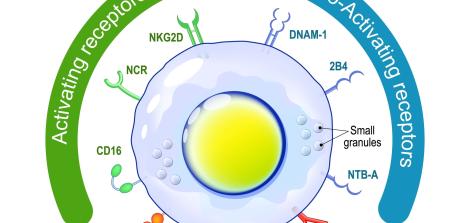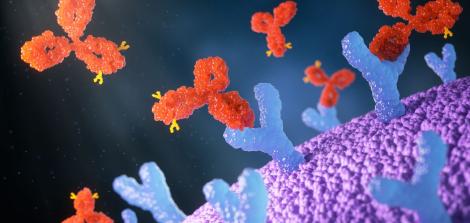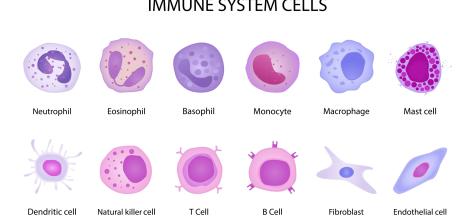Early Prediction of Gestational Diabetes Using Gut Microbiota

Gestational Diabetes Mellitus, or GMS, is a temporary condition expressed by insulin resistance that affects about 10% of gestational women. Insulin is a hormone vital for glycemic control, and resistance thereto leads to hyperglycemia. Gestational diabetes can have significant implications for maternal and neonatal health, mostly a higher risk of preeclampsia, depression, and macrosomia, a condition in which the fetus is too large, which involves a higher risk of an emergency C-section.
Routine survey tests done in Israel on pregnant women include a glucose-tolerance test, which is capable of identifying women at the risk of developing gestational diabetes. Since insulin resistance in gestational diabetes develops gradually during the gestational months - testing is ineffective prior to Week 24 of pregnancy; thus, glucose-tolerance tests are performed between Week 24 and Week 28 of pregnancy - namely in the late second trimester. Early detection and management of GMS may reduce the risk associated with Diabetes and prevent complications.
Gut microbiota: The key to the early prediction of gestational diabetes?
Is it possible to predict gestational diabetes by identifying gut-microbiota alterations as early as the first trimester of pregnancy? Microbiota is the name of the ecological population of microorganisms, including bacteria, viruses, fungi, parasites, and unicellular organisms, that develops inside the living host with which it maintains a relationship of reciprocity. Previous studies have shown a connection between gut-microbiota alterations and different diseases, such as diabetes; one study has even shown a connection between microbiota alterations and gestational diabetes in the third trimester of pregnancy.
This is the question that investigators, led by Prof. Omry Koren at the microbiota laboratory at Bar-Ilan University with the help of Prof. Yoram Louzoun, wanted to answer. To do so, the investigators had to take samples from hundreds of pregnant women, use advanced gut-microbiota identification and mapping technologies, and cross-reference data to establish the connection between gut microbiota and the development of gestational diabetes.
Study design: First step - do gut-microbiota alterations predict gestational diabetes?
For the purpose of this study, 394 women in their first trimester of pregnancy were recruited in order to provide blood and stool samples as well as relevant clinical information and pregnancy follow-up data. The stool samples were used to profile the gut microbiota composition, and the blood samples were used to collect other relevant data. In addition, the women were interviewed by dietitians and filled out lifestyle and stress questionnaires in order to assess their eating habits and lifestyles.
The study also involved the documentation of results from glucose-tolerance tests performed in the late second trimester and the early third trimester, based on which gestational diabetes was diagnosed in the traditional manner. As predicted, 11% of the women (44) were diagnosed with gestational diabetes. The other 350 women whose glucose-tolerance test results were normal served as the control group.
Next, the investigators needed to examine whether the stool samples taken from those 44 women in their first trimester of pregnancy indicated the presence of gut microbial dysbiosis, namely an imbalance in the gut microbial community, which could be identified as early as in the first trimester of pregnancy. The result of this examination was positive.
In other words, gut microbiota mapping in women during the first trimester of pregnancy can predict gestational diabetes.
Study design: Second step - is there a causal connection between gut-microbiota alterations and gestational diabetes?
The relationship between gut microbiota and different medical conditions is complex. For this reason, the investigator’s next step was to examine whether gut-microbiota alterations were the reason for the onset of diabetes, or rather that the onset of diabetes was the cause of gut-microbiota alterations. If gestational diabetes develops because of such alterations in the gut microbiota, attempts can be made to prevent the onset of diabetes using therapeutic interventions, such as the attempted alteration of gut microbial composition.
In order to confirm causality between gut microbiota and the development of gestational diabetes, the investigators transplanted feces from women from three different populations - Israel, Finland, and the USA, some of whom would later be diagnosed with gestational diabetes, and some would not, in germ-free female mice. Gut-microbiota samples taken from the two mice groups seven days after fecal transplantation demonstrated significant differences between these groups. Glucose-tolerance tests done to female mice three weeks after fecal transplantation showed that mice to which feces from diabetic women had been transplanted developed lower glucose resistance, as was observed in women.
The results were similar in the three study populations and indicated that gut-microbiota alterations were indeed the reason for developing insulin resistance. The investigators concluded that an imbalance in the gut microbial community leads to the development of an inflammatory process, which in turn leads to gestational diabetes.
The bottom line
The study points to a causal connection between gut microbiota in pregnant women in the first trimester and the development of gestational diabetes later on. Identifying this connection at an early gestational stage can facilitate the early diagnosis of diabetes and early intervention, which can reduce the proportion of women with this condition, prevent serious complications, and save lives.
This study has immediate relevancy and applications and has already helped the investigators develop an algorithm comprised of several indexes. The investigators believe this algorithm will facilitate the accurate profiling of gestational diabetes - based on a few simple physiological tests.
Last Updated Date : 13/03/2023








